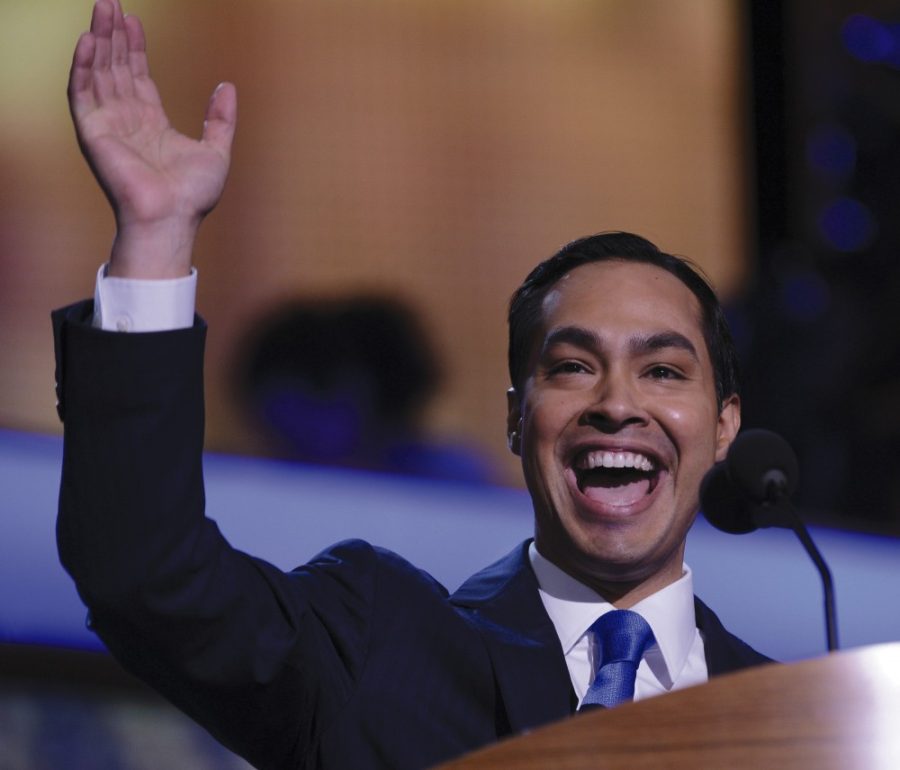CHARLOTTE, N.C. — Day one of the Democratic convention made clear that the two parties agree on one thing: Women and Latinos will determine the outcome of the 2012 election.
But as Tuesday’s proceedings showed, they have sharply contrasting ways of pitching their appeals.
From Ann Romney’s speech in Tampa a week ago, through Sen. Marco Rubio’s address on the GOP’s closing night, Republicans focused repeatedly on trying to limit President Barack Obama’s lead among those two groups. They sought to accomplish that goal by focusing heavily on general themes of opportunity and enterprise, almost to the exclusion of specific policy proposals.
By contrast, the challenge for Democrats is to convince those voters that Obama’s presidency has made their lives better despite the poor economy. As the party’s speakers demonstrated in the opening night, they plan to spend their convention focusing intensively on policy specifics — including an unexpectedly strong emphasis on Obama’s health care law.
The convention’s keynote speaker, Julian Castro, the mayor of San Antonio, summarized the contrast between the parties this way: At the Republican convention, he said, “they told a few stories of individual success. We all celebrate individual success. But the question is, how do we multiply that success?”
The traditional Democratic answer to that question has been that government programs can help people climb the economic ladder. The problem the party has faced—in the mid-term election of 2010 and continuing into the current contest — is that a prolonged poor economy under a Democratic president has undermined voters’ willingness to accept that argument.
White, male voters, particularly those without a college education, have become especially disillusioned with the efficacy of government, polls show. Many see government programs as providing benefits to people other than them. With those voters tilting heavily toward Republican nominee Mitt Romney and black voters overwhelmingly siding with Obama, Latinos and white women have become the primary targets of both campaigns.
Romney campaign officials estimate that they will need at least three-in-five white voters to win in November. So far, Romney’s lagging support among women has kept him short of that goal. Democrats not only need to hold the support of about two-thirds of Latinos, a level they have hit in several recent polls, but also must achieve a turnout similar to the level of 2008, something still very much in doubt.
Democratic strategists believe most of the remaining undecided voters in both groups mistrust Romney and his background as a wealthy businessman. But to get those voters to show up at the polls and cast a ballot for Obama, the Democratic campaign needs to convince them that the president’s policies have begun to improve their lives and that he will do more for them if he gets another four years in the Oval Office.
Tuesday, some of the heaviest emphasis landed on health care reform. Although that law is Obama’s signature domestic policy achievement, the attention it received marked a shift. Obama and his campaign aides often have shied away from trying to sell the health law to a skeptical public. Some officials have argued that the public will warm to health reform only when it is fully implemented, after 2013.
But with a parade of testimonials, the opening day of the convention served as a public reintroduction. Chicago Mayor Rahm Emmanuel, the former White House chief of staff, extolled its genesis. A video tribute to former Sen. Ted Kennedy of Massachusetts highlighted the law as a Democratic legacy. A mother from the swing state of Colorado delivered an emotional account of how the law has reassured her that her toddler, born with a serious heart defect, will be able to receive care.
“For us Democrats, Obamacare is a badge of honor,” declared Health and Human Services Secretary Kathleen Sebelius, using the label that Republicans initially coined to deride the health law. “No matter who you are, what stage of life you’re in, this law is a good thing,” she said. “Insurance companies can no longer refuse to cover Americans with pre-existing conditions. That’s what change looks like.”
Those tributes came during the convention’s early hours — before network prime time. But health reform also received attention during the portion aired by the broadcast networks. Castro featured it in his list of Obama’s major achievements. And first lady Michelle Obama linked the health law to another longtime Democratic theme, birth control and abortion rights.
The president “believes that women are more than capable of making our own choices about our bodies and our health care,” Obama said. “That’s what my husband stands for.”
Obama, billing herself as the “mom in chief,” hit several other items on the campaign’s checklist of women-friendly themes, including legislation to help women achieve equal pay and help for students to pay for college. She also extolled military families, an appeal that reflects the campaign’s belief that today’s enlisted ranks, many of whom are black, Latino or women, may give Obama more support than past Democratic candidates have received.
Obama aides believe many of the issues that appeal to women also appeal to Latinos. The percentage of Latinos who lack health insurance greatly exceeds that of the population at large, for example. Obama’s moves to make college education more affordable by expanding the Pell Grant program and reducing the interest rates on student loans similarly could win over both groups.
But speakers also made sure to remind Latino voters of the president’s actions on another key issue of Latino concern — immigration. “Because he knows that we don’t have an ounce of talent to waste, the president took action to lift the shadow of deportation from a generation of young, law-abiding immigrants called dreamers,” Castro said. The line drew some of the loudest applause of the night.









